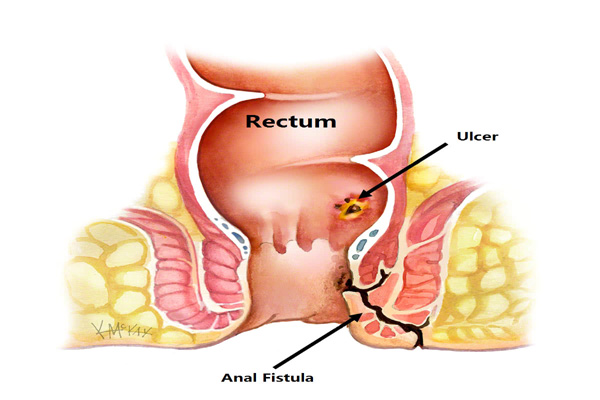Anal Fistula
Anal fistula is a medical condition in which an abnormal small tunnel is developed that connects the bowel with the skin near the anus.

Anal fistula is a medical condition in which an abnormal small tunnel is developed that connects the bowel with the skin near the anus.

If you are suffering from anal fistula, you will experience one or more of the following symptoms:
Most cases of anal fistula develop from an anal abscess. When one of the small glands present in or around the anus becomes blocked, an abscess is formed collecting pus. The abscess needs to be drained either by surgery unless it drains spontaneously. Untreated anal abscess may develop into a fistula. Certain medical conditions increase the risk of fistula formation. These conditions include:
Anal fistula is more commonly seen in patients with these conditions:
Anal fistula can be prevented by timely treatment of anal abscesses.
Your doctor will first take a detailed history and a physical examination to look for an external opening on the skin. Pus drainage can be often seen from the external opening. If an external opening is visible, your doctor will then try to determine the depth and direction of the fistula tract.
Your doctor may also perform a digital rectal examination (DRE). It is a simple bedside procedure in which your doctor will insert a gloved finger into your anus to look for any abnormality. Proctoscopy or anoscopy is also usually performed.
You doctor may also advise further testing to look for the openings of anal fistula. These tests may include:
If you or someone you know is diagnosed with an anal fistula, a surgery is usually required to close off the fistula. Conservative management does not help much in healing of fistula.
Different surgical options are available to treat anal fistula. Your doctor will discuss these options with you and advise you according to your general health and your condition. Most patients need general anesthesia for these procedures. The available options are:
After surgery, you will be given appropriate pain killers. You will be advised to drink plenty of fluids and eat a high-fiber diet to prevent constipation. You should expect to have a bowel movement within 48 hours. This may initially be uncomfortable and painful. A small amount of bleeding or discharge is possible. You can resume your daily activities, provided you feel comfortable.